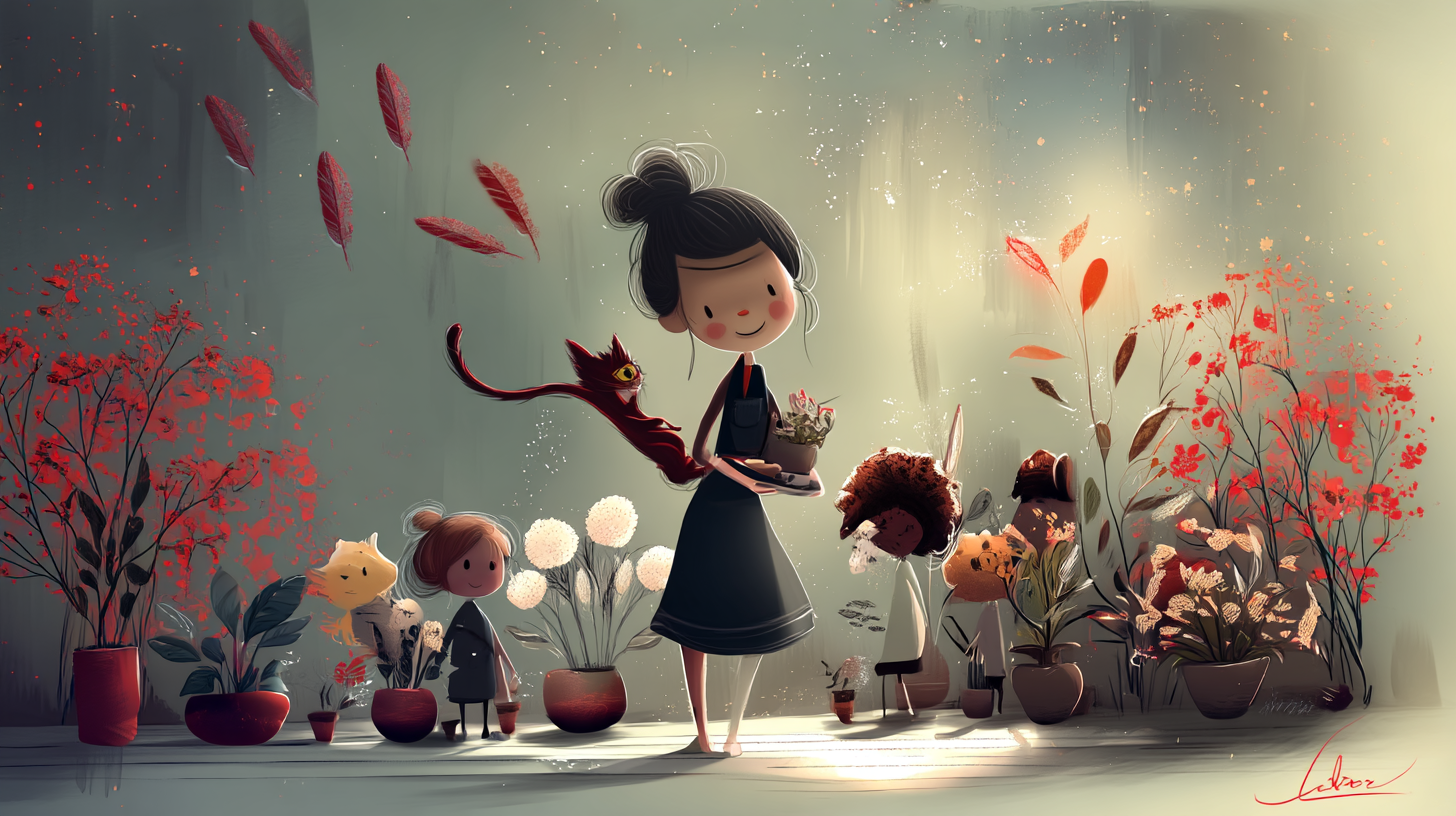“Stroke” means a brain problem, a single hit, or a soft touch.
「stroke」は、脳の病気(脳卒中)、たたく動作、またはなでる動作を意味します。
以下は英単語 “stroke” に関するストーリー型学習コンテンツです。まずは大枠の意味を理解して最後の文章で確認しましょう。
主な意味(main meaning)
| 品詞 | 意味(簡潔な定義) | 発音記号(IPA) | 英語例文 |
|---|---|---|---|
| 名詞 | 脳卒中(脳の血流が止まること) | /stroʊk/ | His grandfather suffered a stroke last year. |
| 名詞 | 一撃、ひと打ち(何かを一回打つこと) | /stroʊk/ | She gave the ball a strong stroke with the racket. |
| 名詞 | なでること、なで方 | /stroʊk/ | He gave the cat a gentle stroke on its head. |
| 動詞 | なでる、軽く触れる | /stroʊk/ | She stroked her dog to calm it down. |
語源(etymology)
「stroke」は中英語「stroken」(打つ)に由来し、古英語「stracian」(なでる)や「strican」(こする)と関連があります。「一つの動き(stroke)」というイメージが核です。
類義語(synonyms)
| 類義語 | 例文 |
|---|---|
| hit | He hit the ball with a bat. |
| tap | She tapped him on the shoulder. |
| pat | The teacher patted the child on the back. |
| caress | He gently caressed her hand. |
| blow | A strong blow knocked the man down. |
反義語(antonyms)
| 反義語 | 例文 |
|---|---|
| ignore | He ignored the cat instead of stroking it. |
| neglect | She neglected the symptoms of a stroke. |
コロケーション(collocations)
| コロケーション | 例文 |
|---|---|
| suffer a stroke | My uncle suffered a stroke and was hospitalized. |
| a gentle stroke | The baby smiled at the gentle stroke on his cheek. |
| a stroke of luck | It was a stroke of luck that we caught the last train. |
| swim strokes | She practiced different swim strokes at the pool. |
| brush stroke | The artist’s brush stroke was smooth and bold. |
2項表現(binomials)
| 2項表現 | 例文 |
|---|---|
| trial and error | She learned to paint through trial and error. |
| black and white | The image was in black and white, with every stroke visible. |
英語ストーリー(english story)
Title: A Stroke of Luck at Work
Emily had been working at the office for five years. One day, her boss suddenly collapsed. Everyone was shocked. Emily quickly called an ambulance and helped him lie down gently. Later, the doctor said it was a stroke (脳卒中).
Thanks to her quick action, the boss recovered well. He was very grateful and gave Emily a small bonus as a thank-you gift. “That was a stroke of luck,” said her friend Anna. Emily smiled and replied, “Yes, but I also reacted fast.”
That evening, Emily went home and saw her cat sleeping. She gave it a gentle stroke on its back. The cat purred happily. While watching TV, Emily remembered her boss using the phrase “trial and error” during a meeting. She thought about how life was full of chances to learn.
Later that weekend, Emily went to a painting class. The teacher showed her how to use soft brush strokes. She practiced each stroke carefully, just like she had done in the office—focused and calm.
和訳
職場での幸運な出来事
エミリーはそのオフィスで5年間働いていました。ある日、突然上司が倒れました。皆驚きました。エミリーはすぐに救急車を呼び、彼をそっと横に寝かせました。後で医者は、それが**stroke(脳卒中)**だったと話しました。
彼女の素早い対応のおかげで、上司は無事回復しました。彼はとても感謝して、エミリーに小さなボーナスを渡しました。「まさに**stroke of luck(幸運な出来事)**だったね」と友人のアンナが言いました。エミリーは笑って、「でも、私もすぐに動けたからね」と答えました。
その夜、エミリーが帰宅すると、猫が眠っていました。彼女は背中を**gentle stroke(やさしくなでて)**ました。猫は気持ちよさそうにゴロゴロ鳴きました。テレビを見ながら、エミリーは上司が会議で「trial and error(試行錯誤)」という言葉を使っていたのを思い出しました。人生には学ぶチャンスがたくさんあるなと思いました。
その週末、エミリーは絵画教室に行きました。先生は柔らかな**brush stroke(筆の動き)の使い方を教えてくれました。彼女はそれぞれのstroke(一筆)**を丁寧に練習しました。職場でのように、集中して落ち着いて。
Q&A
「stroke」と「hit」はどう違いますか?
「stroke」はやさしく、なめらかに触れる動作を指すのに対し、「hit」は力をこめてたたく動作です。たとえば、猫をなでるときは「stroke」、ボールをバットで打つときは「hit」を使います。
「stroke」と「tap」はどう違いますか?
「tap」は軽くトントンとたたくことを意味します。一方「stroke」はなめらかにさするような動きです。肩を軽くたたくときは「tap」、猫の背中をなでるときは「stroke」が自然です。
「stroke」と「pat」はどう違いますか?
「pat」は軽くポンポンとたたくことで、愛情や安心感を伝える動作です。「stroke」はなでるような、より長くやさしい接触を表します。赤ちゃんの背中をトントンするなら「pat」、髪をやさしくなでるなら「stroke」が合います。
「stroke」と「caress」はどう違いますか?
「caress」は「stroke」よりも感情的で親密な意味合いが強く、恋人や家族への愛情をこめたなで方を指します。「stroke」はもう少し一般的で、ペットや子どもにも使える中立的な表現です。
「stroke」と「blow」はどう違いますか?
「blow」は一撃、強い打撃を表します。たとえばボクシングのパンチや事故での衝撃です。「stroke」はそれに比べて穏やかな動きを表し、なでたり、一回何かをする動作(筆を動かす、泳ぐなど)にも使えます。
「suffer a stroke」と「have a stroke」はどう違いますか?
両方とも「脳卒中になる」という意味ですが、「suffer a stroke」のほうが重く、苦しみを強調する言い方です。「have a stroke」はより中立的です。
「a gentle stroke」と「a soft touch」はどう違いますか?
どちらもやさしく触れることを表しますが、「a gentle stroke」は手の動きがなめらかに続く感じを表し、「a soft touch」は一回の短い接触に使うことが多いです。
「a stroke of luck」と「a lucky chance」はどう違いますか?
「a stroke of luck」は予想外で突然訪れる幸運というニュアンスがあります。「a lucky chance」は偶然訪れたよい機会という意味で、もう少し一般的です。
「brush stroke」と「paint line」はどう違いますか?
「brush stroke」は筆を動かす一回の動きで、芸術的なニュアンスがあります。「paint line」は単に「ペンキの線」で、筆の使い方や表現までは含みません。



コメント